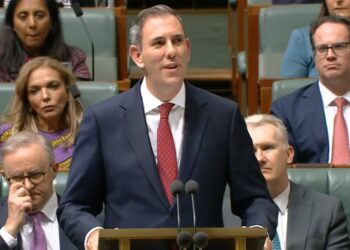In August, Colonial First State (CFS) executive general manager Linda Elkins faced the royal commission, where she was questioned about CBA’s handling of the MySuper transition.
From 1 January 2014, employers could only make default contributions to a registrable superannuation entity (RSE) offering a MySuper product.
Counsel assisting Michael Hodge established in his questions to Ms Elkins that CBA had breached the law 15,000 times by receiving default contributions into high-fee-paying accounts after 1 January 2014.
RSEs were also given a deadline of 1 July 2017 to transfer existing accrued default accounts (ADAs) to an approved MySuper product.
Mr Hodge noted that the contravention of s.29WA of the SIS Act is a strict liability offence, a point that was highlighted by CBA in its latest submission to the Hayne inquiry.
“However, it should be noted that in determining whether or not an offence has actually occurred, consideration would need to be given to the defence of mistake of fact available in section 6.1 of the Criminal Code in respect of strict liability offences,” the bank said.
“This is particularly the case here where CFSIL was genuinely of the belief that the members for whom the s.29WA breach occurred were in fact ‘choice’ members who fell outside the requirements of s.29WA and that it was only after engagement with APRA that it understood that the regulator was of a different view.”
In June 2014, the board of CFS was told by management that APRA had requested it accelerate the transition for 60,000 ADA members, the royal commission heard.
Moving the 60,000 into lower-fee MySuper products would have the effect of turning off grandfathered commissions for advisers, the royal commission heard.
CFS, like other retail super providers, was eager to have ADA clients make an “investment decision” so that they would be considered a ‘choice’ member and therefore ineligible for transfer to a MySuper product.
In Mr Hodge’s submission to the commission following the fifth round of hearings, he stated that it is open to the commission to find that additional breaches occurred.
In response, CBA stated that “there is no evidence before the commission to suggest that the failure to pay contributions of a subset of FirstChoice Personal members into a MySuper product was anything other than a genuine misunderstanding about the scope of s.29WA and its impact on particular cohorts of members, which CFSIL came to learn APRA did not agree with”.
“CFSIL believed that these members of FirstChoice Personal were choice members, to whom s.29WA did not apply,” the bank said.
“That honest mistake does not excuse CFSIL’s breach of the SIS Act provisions and s.912A(1)(c) of the Corporations Act as it has properly conceded, but it does tell against a finding of a failure to do all things necessary to provide services efficiently, honestly and fairly.”




What nothing to see here folks, over 50,000 illegal money laundering deposits, tens of Millions in Fees for no Service, 15,000 contribution law breaches, 60,000 super clients keep in high fee accounts longer than legally allowed.
Carry on chaps at the CBA / CFS jolly good work chums.
And and don’t forget to pay your ASIC users pays fees / bribes on the way to the bar to shout us all drinks.
Ho ho ho what a complete joke.
Anonymous this doesn’t really contribute much to this debate. Section 20B and 29WA of SIS was anything but clear and in many cases saw choices members transferred to far inferior MySuper products because they elected to invest in a products default option (e.g. Balanced option). If they failed to realise they need to formally engage and opt out bad luck. Now they have a crap MySuper product with far inferior life insurance cover in many cases just because they are cheaper. APRA were next to useless in this process as they were forced to enforce perverse regulations. Only the Protecting Your Super package of reforms will now exceed to stupidity of MySuper transition via politicians attempting to score political points rather than look at their actual impact.
An honest mistake !!!!! From the masters of fight everything and say sorry – here is a cheque. They have the biggest legal group and still can’t get it right OR is it the culture and management and greed that is to blame. It certainly is not the adviser- but we still get the blame somehow. just ensure the management get the same FASEA etc that we get to stay in the industry- or better still- kill the culture.